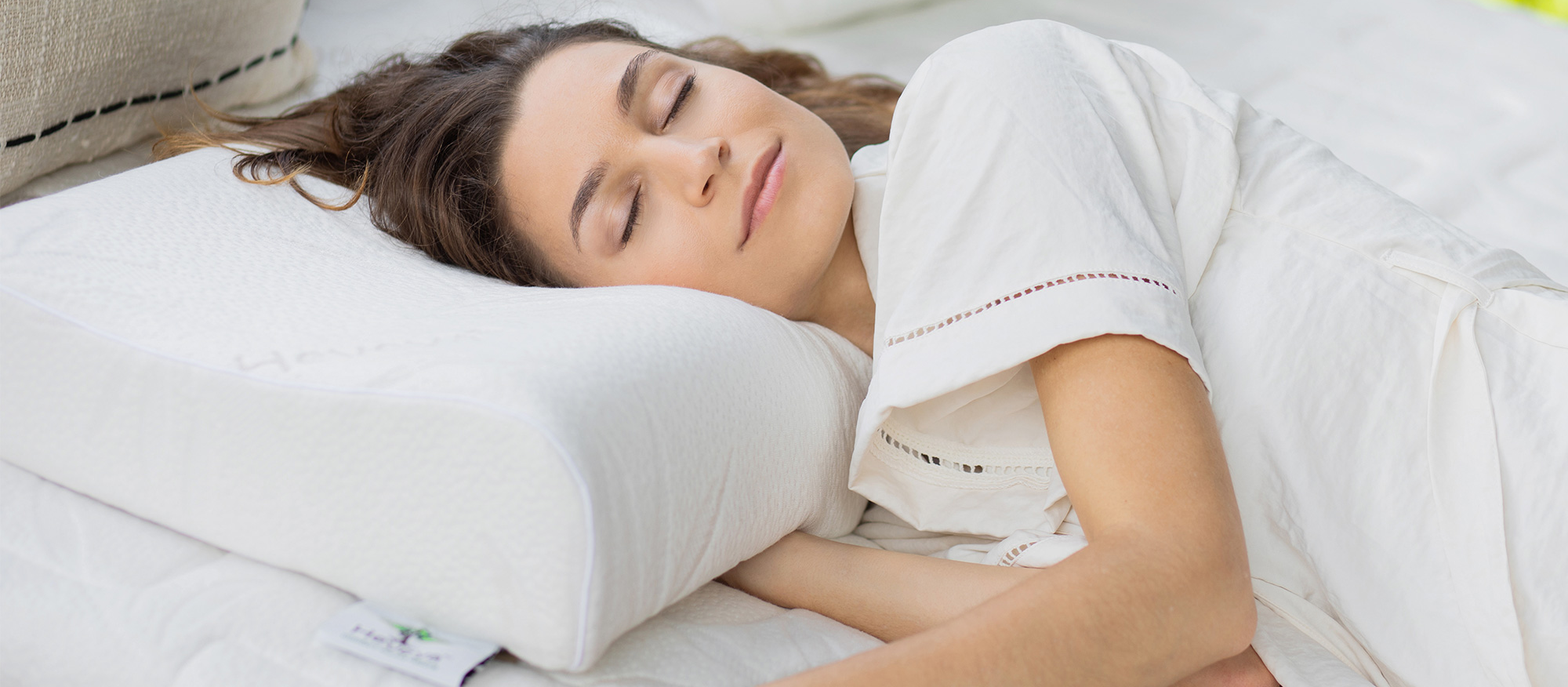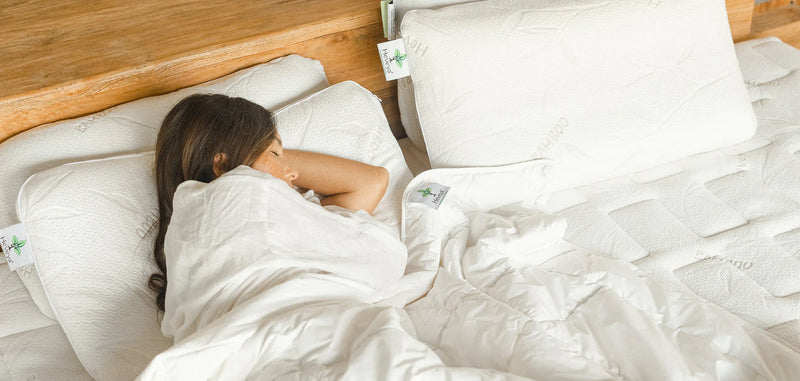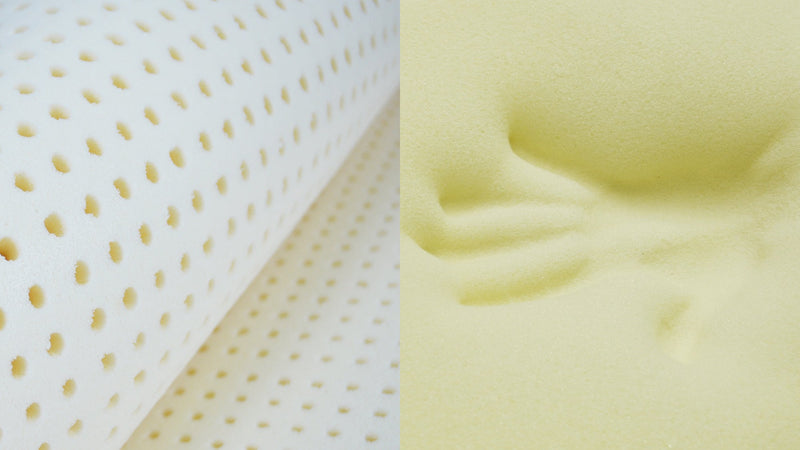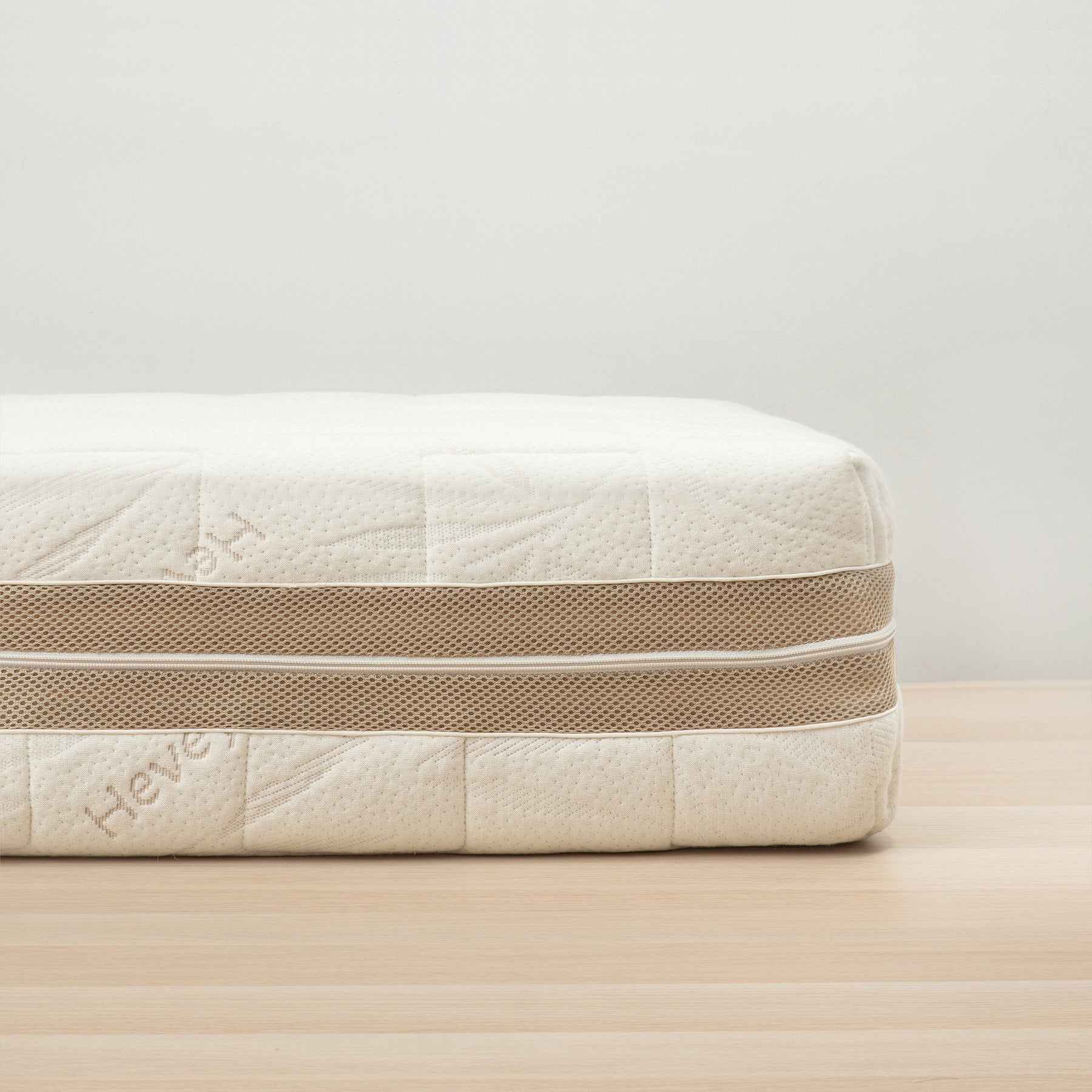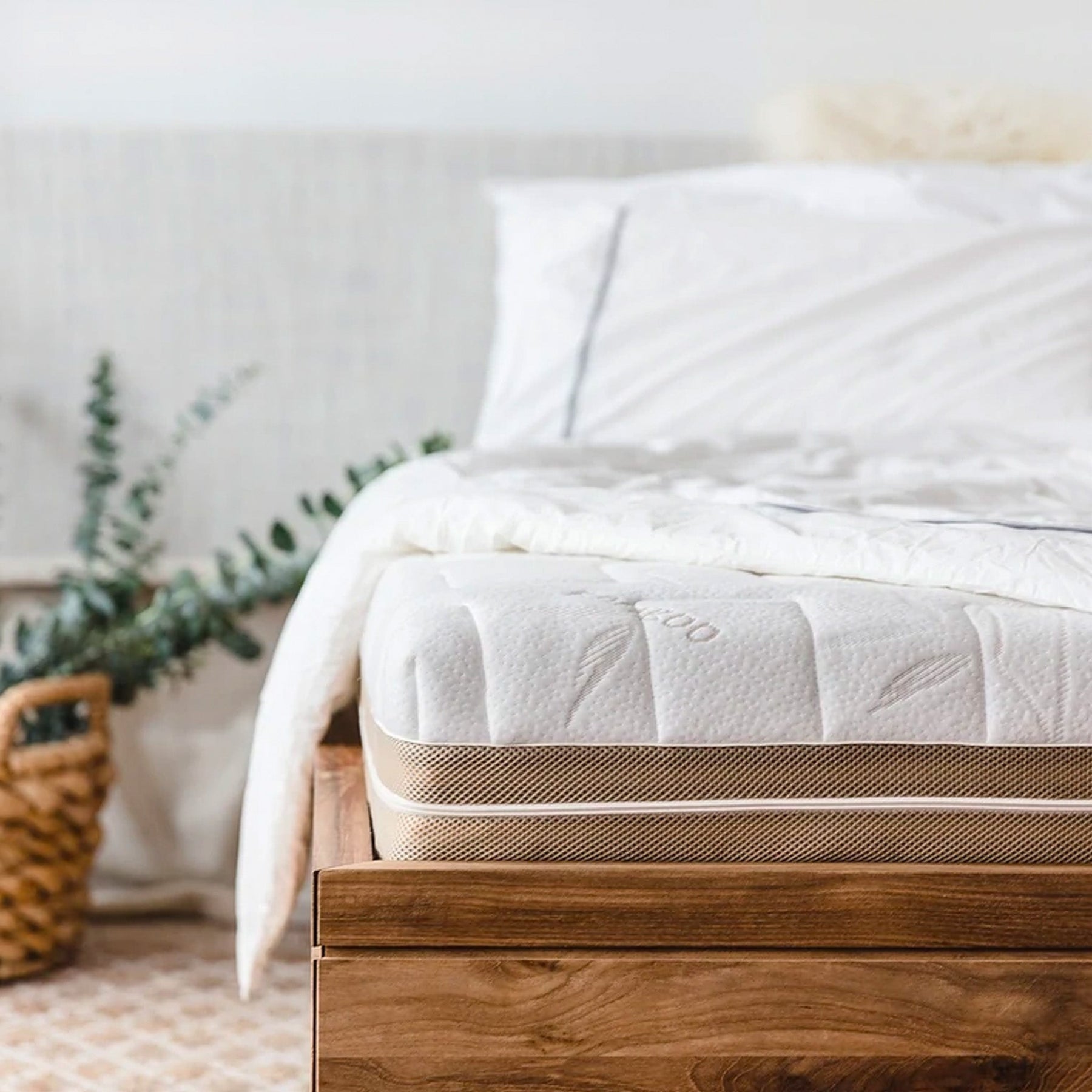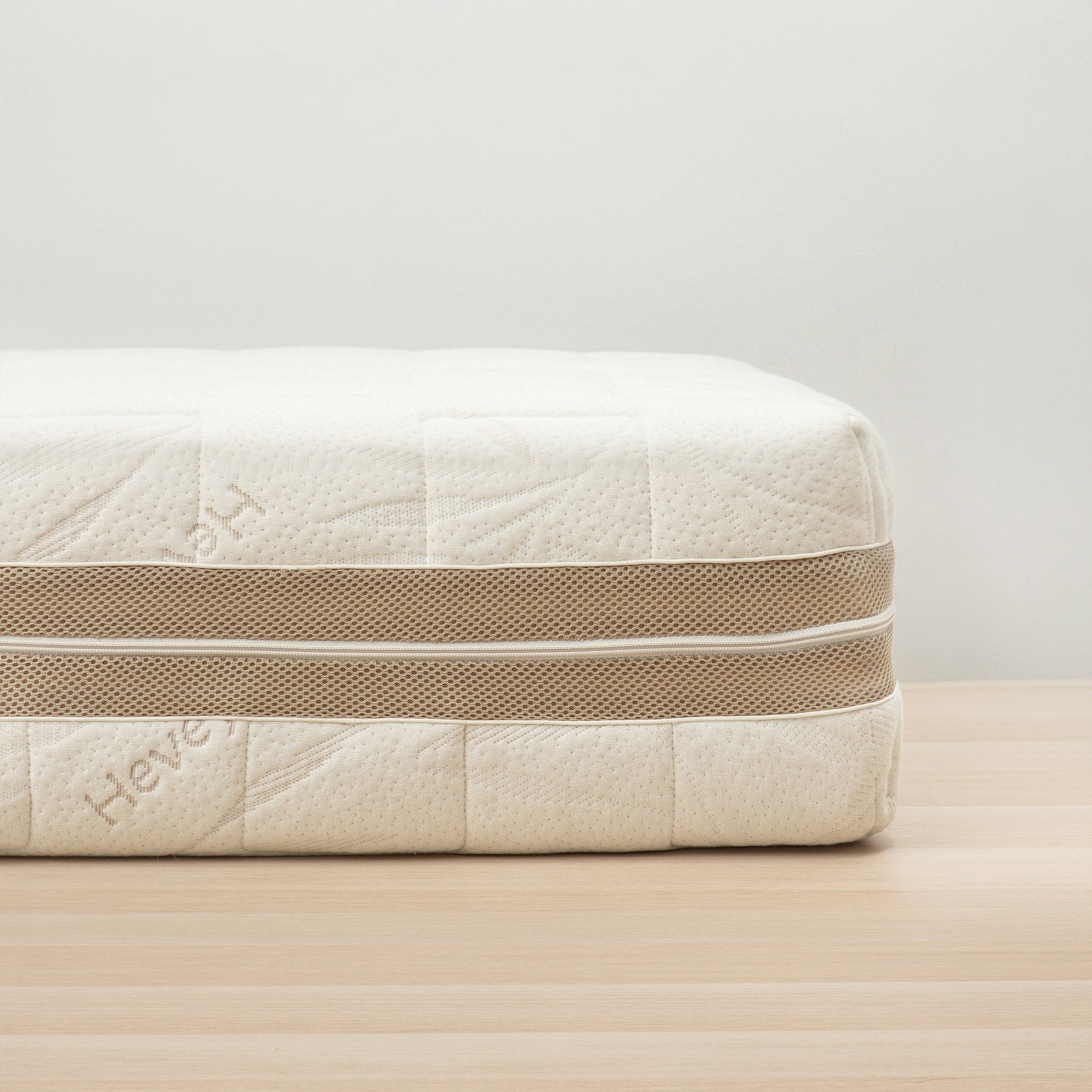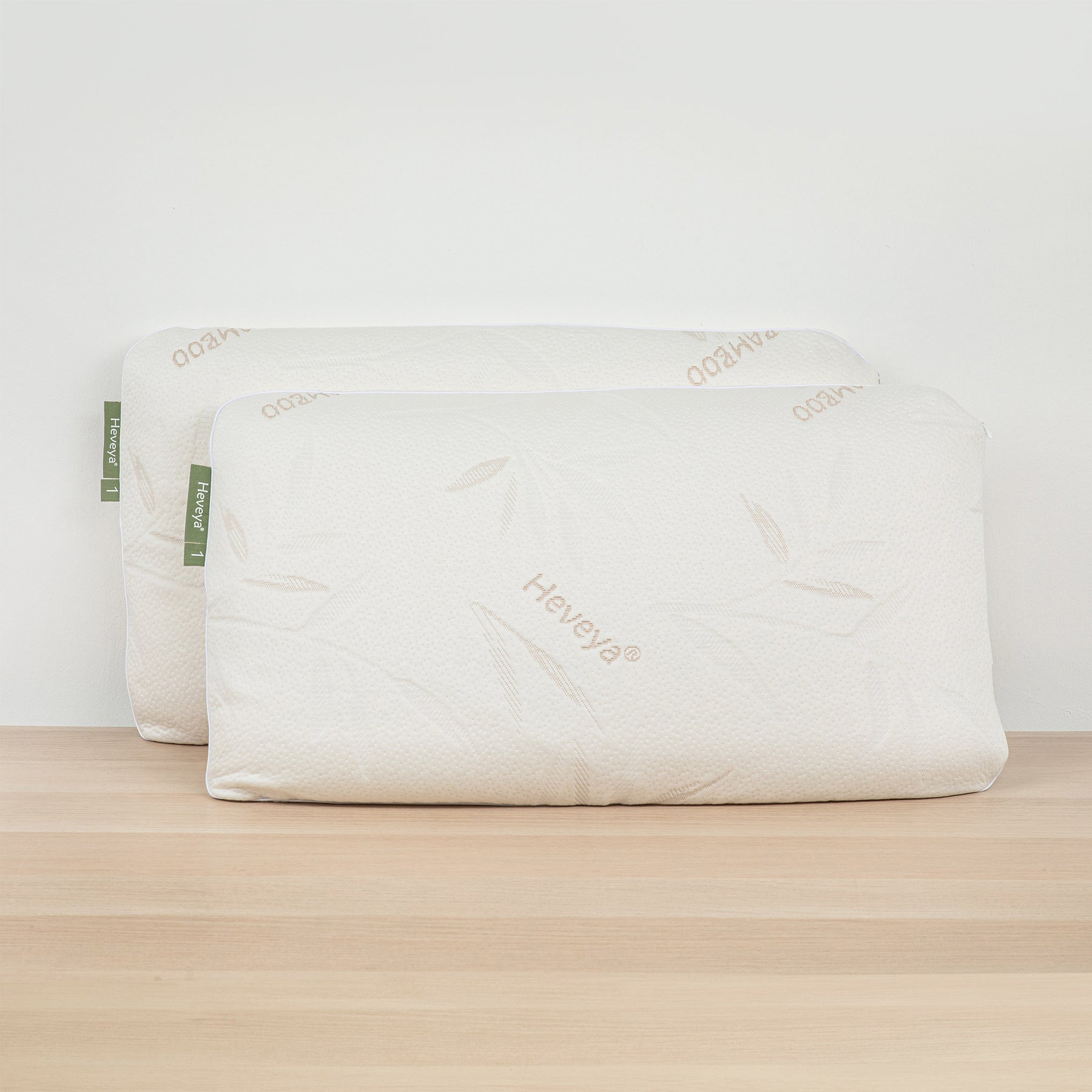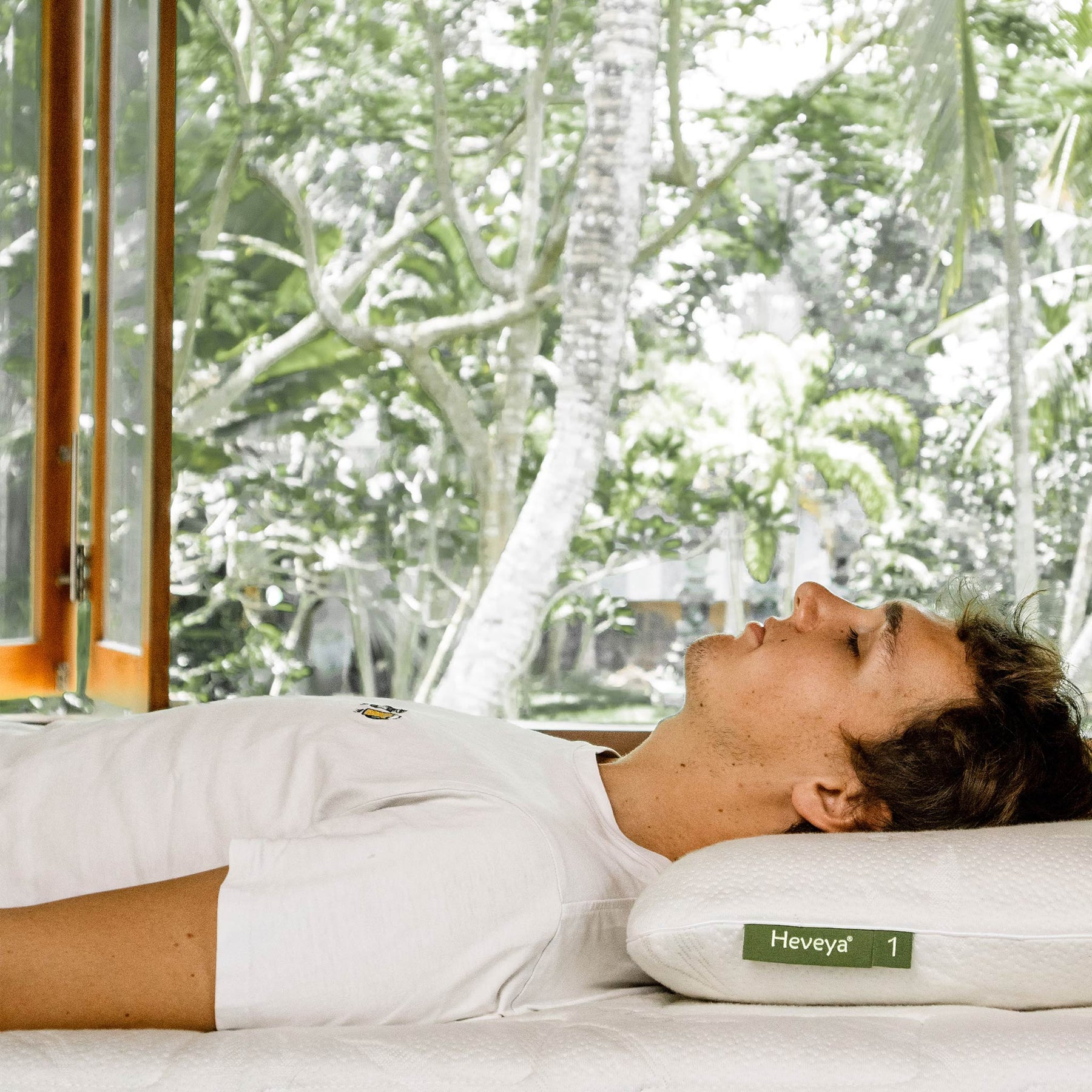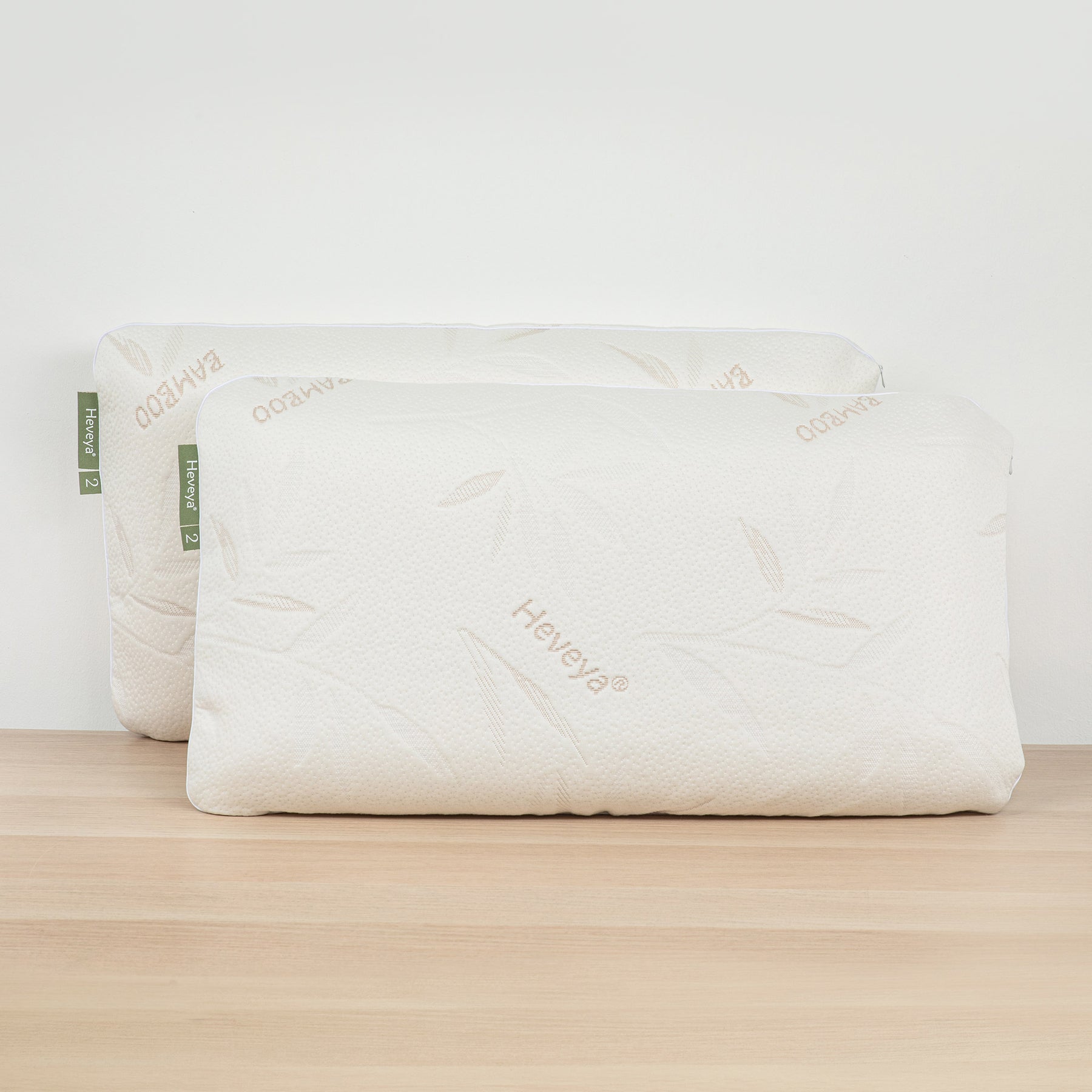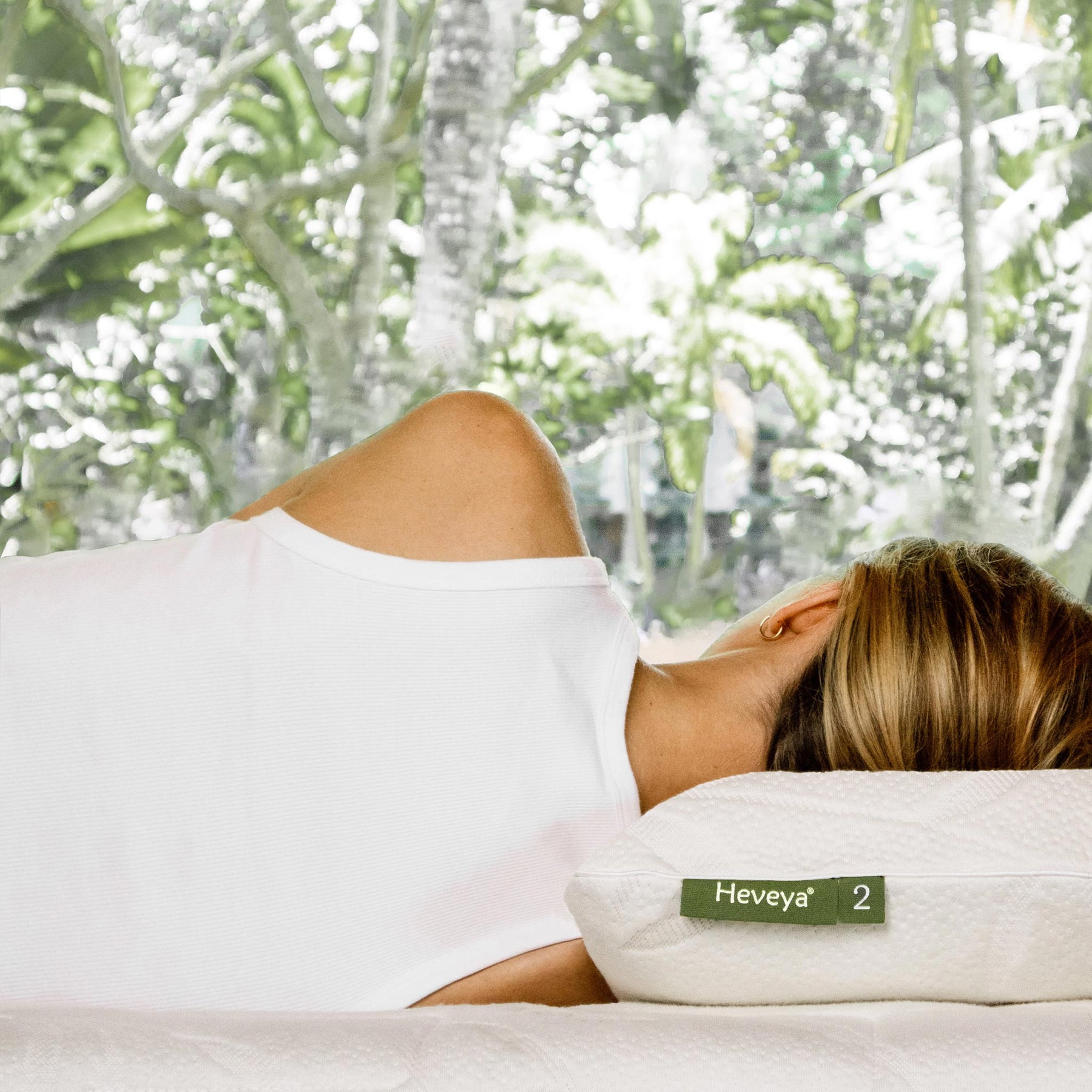Have you ever found yourself tossing and turning, counting sheep until dawn? Or perhaps you wake up feeling even more exhausted than when you went to bed. While we often chalk it up to stress or a late-night cuppa, there's a lesser-known possibility worth considering: the direction you sleep in. It might sound a bit like a stretch there, but stay with us. This fascinating topic has been explored across cultures for centuries, and there may be more to it than meets the eye. Could simply changing the way you're positioned in bed really improve your rest?
In this guide, we’ll explore the potential benefits (and drawbacks) of different sleeping directions, helping you understand whether reorienting your sleep setup could lead to a deeper, more restorative night’s rest.
The Silent Sleep Saboteur: Could Your Sleeping Direction Be To Blame?
Most of us experience sleep troubles from time to time. It might be the struggle to fall asleep, frequent tossing and turning, or waking up feeling groggy despite getting what should be a full night’s rest. While stress, diet, and your bedroom environment are common culprits, there’s one factor many people overlook: the direction you sleep in.
Take the case of a gentleman who struggled with chronic insomnia. He tried everything from herbal teas to meditation to counting backwards from a thousand. Nothing seemed to help. Then, almost on a whim, he rearranged his bedroom and changed the direction he slept in. Within days, his sleep began to improve. Was it a coincidence? Perhaps. But it does raise an interesting question. Could your sleeping direction really be playing a role?
Some believe that your sleep orientation may influence how your body responds to Electromagnetic Fields (EMFs), which are all around us in modern homes. According to this view, certain directions may reduce the impact of these fields on the body while you sleep. It is a debated idea, but one that may be worth considering, especially if you’ve tried everything else and still wake up feeling unrested.
Beyond Tiredness: The Ripple Effect of Poor Sleep
An occasional restless night is perfectly normal, but when poor sleep becomes a regular pattern, it can start to affect more than just your energy levels. Ongoing sleep deprivation doesn’t just make you feel groggy or irritable, it can have a real impact on your long-term health and quality of life.
Here are just a few ways it can take a toll:
-
Lowered immunity, making you more prone to colds and infections
-
Higher risk of heart-related issues, including cardiovascular disease
-
Mood swings and irritability, which can affect your relationships and daily life
-
Difficulty concentrating, along with memory lapses and reduced focus
-
Slower reaction times, increasing the likelihood of accidents
If you’ve been struggling with sleep for a while, it may be worth looking at all potential factors, including your sleeping direction.
Decoding the Compass: Exploring Different Sleeping Orientations
Okay, now we've established that sleeping direction might be more important than one thinks. So, which way should one be sleeping? Let's delve into the potential benefits and drawbacks of each direction.
Sleeping North: Benefits and Potential Drawbacks
In some traditional belief systems, particularly Ayurveda, sleeping with your head pointing north is generally discouraged. The reasoning is based on the Earth's magnetic field. It's believed that sleeping with your head aligned with the magnetic north can disrupt your body's magnetic field, potentially leading to:
-
Restless sleep
-
Headaches
-
Increased blood pressure
Sleeping South: Grounding and Rejuvenation
In contrast to sleeping north, many traditions favour sleeping with your head pointing south. This direction is often associated with:
-
Improved sleep quality
-
Increased energy levels
-
Better overall health
The theory is that aligning oneself with the Earth's magnetic field promotes a sense of grounding and allows the body to rejuvenate properly during sleep. It's even been suggested that this helps prevent nightmares.
Sleeping East: New Beginnings and Vitality
Sleeping with your head pointing east is often associated with new beginnings, vitality, and spiritual growth. Some believe that this direction helps one wake up feeling refreshed and energised, ready to tackle the day ahead. It's also considered a particularly good direction for early risers. However, it might not be ideal for those who struggle to fall asleep easily, as it could potentially make one feel too energised!
Sleeping West: Relaxation and Letting Go
Sleeping with your head pointing west is often associated with relaxation, letting go, and emotional healing. It's believed that this direction can help calm the mind and promote restful sleep, making it a good choice for those who suffer from anxiety or stress. However, some people might find that it makes them feel sluggish or unmotivated in the morning.

It's Not One-Size-Fits-All: Personalising Your Sleep Orientation
Let's be honest, there's no magic compass setting that guarantees a perfect night's sleep for everyone. The "best" sleeping direction for me might be completely different from you. So, what factors should one consider?
-
Body constitution (Ayurvedic doshas): In Ayurveda, different body types (doshas) are believed to benefit from different sleeping directions.
-
Pre-existing health conditions: Certain health issues might make one sleeping direction more comfortable than others.
-
Personal preferences and intuition: Ultimately, the most important factor is how you feel.
-
Geographic location: The Earth's magnetic field varies depending on your location, so the optimal sleeping direction might also change.
Environmental Energy: Why Room Layout Still Matters
For many, sleep quality isn’t just about comfort, it’s also about creating the right energy flow in the bedroom. That’s where feng shui comes in. This traditional Chinese practice is centred around harmony and balance in your surroundings. For those who follow it, the way your bedroom is arranged, including the direction your bed faces, can have a big impact on how well you rest.
Feng shui principles often suggest keeping the head of the bed against a solid wall, avoiding mirrors that directly face the bed, and ensuring the bed isn’t aligned with the door. The goal is to create a restful environment where energy (or chi) can flow freely without disruption. If changing your sleeping direction isn’t practical due to room constraints, adjusting your layout with feng shui in mind may still help improve your rest.
Other environmental factors can also make a difference. For example, reducing EMF exposure by switching off electronic devices at night or avoiding metal spring mattresses that may amplify EMFs! This means it can be beneficial for sensitive sleepers.
Testing the Waters: Practical Steps to Finding Your Perfect Alignment
Curious to try a new sleep orientation? You don’t need to redesign your whole bedroom overnight. Even a slight rotation of your bed can help you notice a difference. Keep a simple sleep diary to track how you feel each morning, and pay attention to how rested you feel in each position.
To help you ease into the shift:
-
Declutter your space: Improves energy flow and creates a calming sleep environment.
-
Rearrange your furniture: Gradually test what feels most balanced and inviting.
-
Use a compass: To accurately determine the direction your bed is facing.
-
Reduce EMF exposure: Turn off electronic devices before bed, or consider using EMF-blocking materials. Consider switching from a metal spring mattress to a natural latex one, as metal coils can amplify EMFs.
-
Create a dark, quiet, and cool environment: Use blackout curtains, earplugs, and a white noise machine to optimise your sleep environment.
Tuning into your body is key. What works for someone else might not work for you, and the best direction is the one that leaves you waking up refreshed and ready for the day.
The Bigger Picture: Complementary Strategies for a Restful Night
While sleeping direction can be a helpful tool, it's just one piece of the puzzle. To truly optimise your sleep, it's important to adopt a holistic approach that addresses all aspects of your sleep health. Below are a few complementary strategies for getting that ever-elusive restful night's sleep:
-
Establish a regular sleep schedule: Go to bed and wake up at the same time each day, even on weekends.
-
Practise relaxation techniques: Meditation, yoga, or deep breathing exercises can help calm your mind before bed.
-
Avoid caffeine and alcohol before bed: These substances can interfere with your sleep cycle.
-
Maintain a healthy diet: Avoid heavy meals and sugary snacks before bed.
-
Regular exercise: Regular physical activity can improve sleep quality, but avoid exercising too close to bedtime.
Sleep health encompasses environmental factors, diet, and daily routines.
A Bed for Better Rest: Selecting a Mattress for Optimal Sleep, Comfort and Alignment
After delving into the intriguing world of sleeping directions, a question arises: how to attain the ultimate rest? Achieving truly restful sleep is a multifaceted endeavour. However, even with perfect alignment, a subpar mattress can undermine your efforts, regardless of which direction we should sleep. Choosing the right mattress is paramount; it's the foundation upon which healthy sleep is built. A good mattress should provide adequate support to maintain proper spinal alignment, offer a level of comfort that allows you to relax fully, be constructed from materials that promote breathability and temperature regulation, and be durable enough to withstand years of use.
 When it comes to selecting the best mattress for sleep wellness, the Heveya® Natural Organic Latex Mattress truly shines. It provides a unique and comprehensive set of benefits that go beyond typical mattresses:
When it comes to selecting the best mattress for sleep wellness, the Heveya® Natural Organic Latex Mattress truly shines. It provides a unique and comprehensive set of benefits that go beyond typical mattresses:
-
Top Comfort and Adaptive Support: It follows the contours of your body, reducing pressure points and ensuring your spine remains straight. This personal support eases pain and can help you relax more.
-
Natural and Organic Materials: Made from 100% natural organic latex, with no nasty chemicals, poisons, glue, metal springs, or man-made materials. The best choice if you're sensitive or have allergies, making sure your sleep environment is clean and healthy.
-
Air Flow and Temperature Control: It has tiny holes for air to pass through, soaking up moisture and controlling the temperature. This stops you from getting too hot and keeps you cool and comfy while you sleep.
-
Resilient Durability and Enduring Longevity: Natural latex is very strong, keeping its shape and support for years. Made to last a long time and stay in good condition.
-
Promotes Optimal Sleep Wellness: A more comfortable sleep helps your spine get better. Wake up feeling refreshed and full of energy
Ready to transform your sleep and invest in your long-term wellness? Delve into the Heveya Natural Organic Latex Mattress and embark on your path to unparalleled sleep health today! Ultimately, the Heveya mattress aims to provide comfort and allow customers to not worry about in which direction we should sleep.
